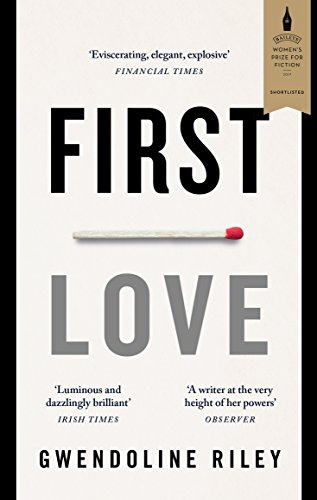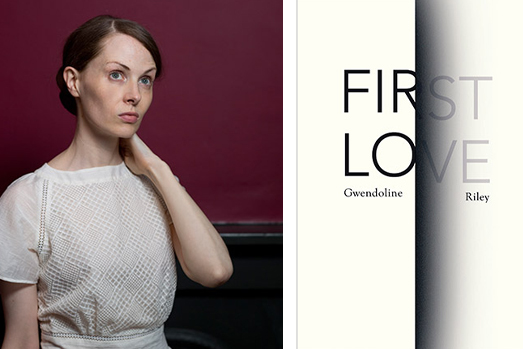From the Women’s Prize Archives.
We caught up with Gwendoline Riley, this year shortlisted for the Baileys Women’s Prize for Fiction for First Love. Read on to find out how First Love was born of disquiet and frantumaglia, how Philip Roth inspires Gwendoline’s work and why she finds human interaction is infinitely fascinating.
How did the initial idea for First Love come about?
If I can slightly misquote Mallarmé, You can’t make a novel with ideas… You make it with words. That’s not true for everyone, but it is true for me. I find writing to be about voice and sentences. So I started with something like what Elena Ferrante calls frantumaglia: a Neapolitan dialect word which her mother used, and which she translates as, ‘bits and pieces of uncertain origin which rattle around in your head not always comfortably.’ So I had some dialogue, descriptions, perceptions about life… And also that sense of disquiet: something was wrong and I had to get it straight. The way to do that was to write this book.
So far your protagonists have been solely women – is this a conscious choice? If so, why?
I’ve always written in the first person, and I’m female, so although the characters change, and the voice evolves, it is always a woman telling the story and trying to sound out her life. I don’t know that conscious choice plays much part in it. I have instincts, impulses and craft. Aping a man’s voice hasn’t inspired me so far, but I wouldn’t rule anything out. I’ve a terror of writing anything voulu, or merely plausible, that’s the thing.

Which authors have most influenced your work so far?
I’d rather say inspired than influenced. And there are too many to list. Writing this book, I had in mind Philip Roth’s My Life As A Man, and Elizabeth Harrower’s The Watch Tower. I wanted to write something that would be compelling in the same way that they are. And something funny, too, I hoped. (The Roth is funny, and exhilarating; the Harrower is not.) I was also thinking of The Sense of an Ending: that poor man trying to understand his life. And The Serious Game by Hjalmar Soderberg, which has a sorrowful and baffled mood.
First Love is in many ways about the tension between intimacy and freedom within a relationship – do you think this push and pull is necessarily acrimonious?
Well it depends on who’s involved! I’m fascinated by how people interact with one another; what they want or expect and how they express that or fail to; the dreadful accesses of rage, revulsion and fear that can erupt. I’m also interested in parents’ assumptions about what their children are for. That can put the seal on someone feeling free or not.
Intimacy can be liberating. It should be. On the other hand, some people do just want to be left the hell alone, and that’s fine too. The couple in my novel observe each other acutely and unsparingly, and then they seem not to see each other at all. I don’t think that’s uncommon.
Can you tell us about what you’re working on now?
Not in any great detail, I’m sorry! I’m at the frantumaglia stage. It’s another novel, set in London and Prague. It’s in the third person, and to me it feels like a break from my other books. There were certain things I put to bed with First Love. But we’ll see…



